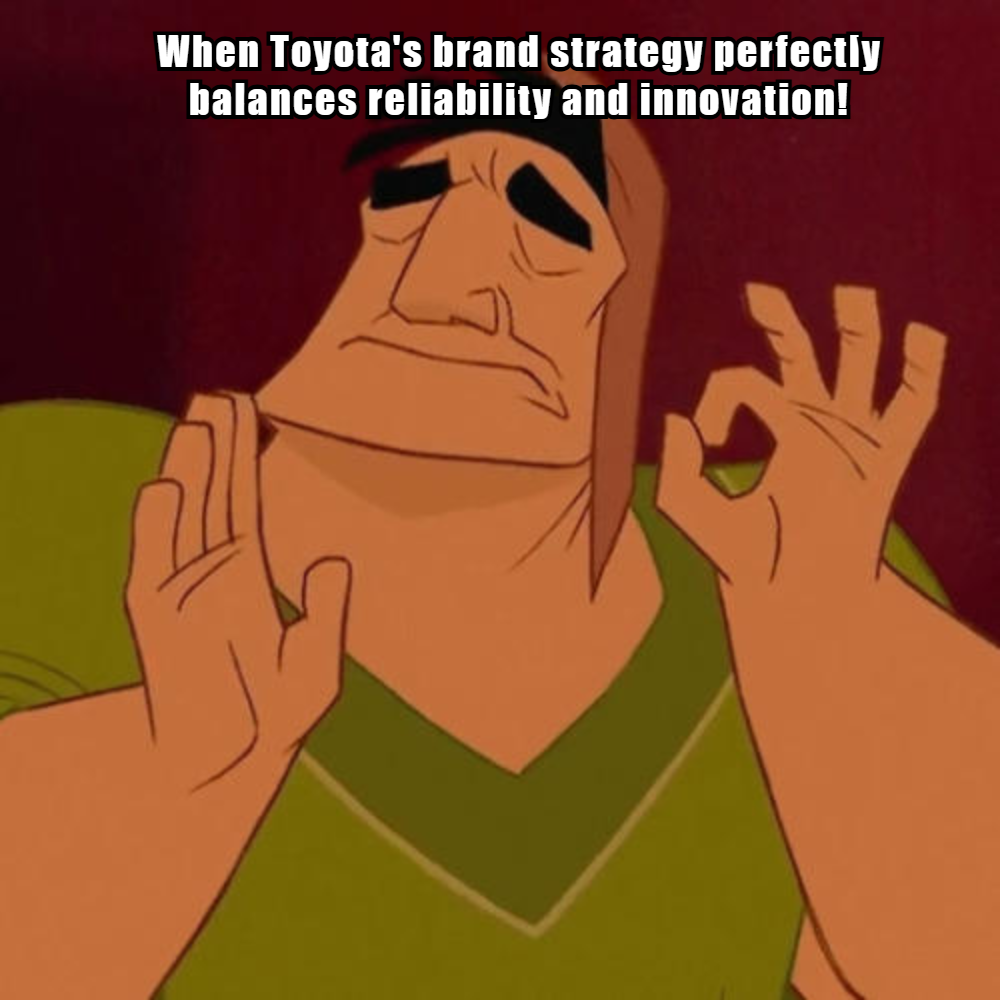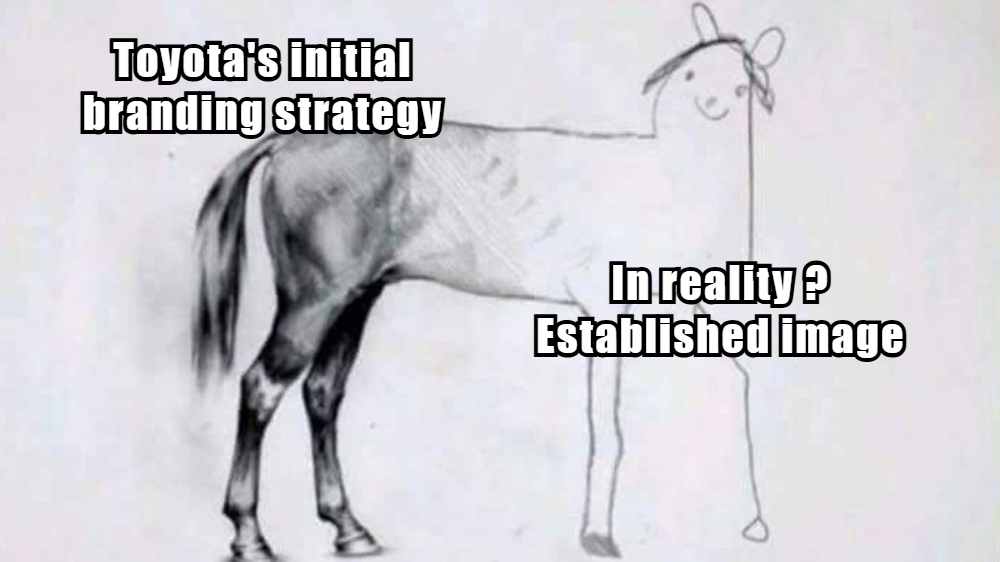In the vast and competitive automotive landscape, few brands have managed to achieve the level of recognition and loyalty that Toyota has. With a history spanning over eight decades, Toyota has evolved from a humble Japanese automaker to a global giant, synonymous with quality, reliability, and innovation. At the heart of this success lies a robust branding strategy that has allowed Toyota to not only thrive but dominate markets worldwide. In this article, we’ll delve into the intricacies of Toyota’s branding strategy, explore examples of its effectiveness, and discuss what other brands can learn from this iconic company.
Understanding Toyota’s Brand Identity

Toyota’s brand identity is built on a foundation of core values that have remained consistent over the years. These values include a commitment to quality, innovation, and customer satisfaction. The brand’s mission is to create vehicles that exceed customer expectations in terms of performance, safety, and environmental responsibility. This mission is encapsulated in Toyota’s global vision, which emphasizes the importance of contributing to society through the creation of innovative products and technologies.
One of the key elements of Toyota’s brand identity is its emphasis on quality. The company’s focus on quality is reflected in its rigorous manufacturing processes and its commitment to continuous improvement. This dedication to quality has earned Toyota numerous awards and accolades, including being named one of the most reliable car brands by various automotive surveys.
Toyota’s Brand Positioning

Toyota’s brand positioning is centered around being a leader in the automotive industry. The company aims to be perceived as innovative, reliable, and environmentally conscious. This positioning is achieved through a combination of product offerings, marketing campaigns, and strategic partnerships.
For example, Toyota’s hybrid vehicles, such as the Prius, have positioned the brand as a pioneer in environmentally friendly technology. The Prius, launched in 1997, was the world’s first mass-produced hybrid vehicle and has since become synonymous with eco-friendly driving. This innovation has helped Toyota appeal to environmentally conscious consumers and reinforce its brand image as a leader in sustainable mobility.
Marketing Strategies
Toyota employs a variety of marketing strategies to reinforce its brand image and connect with its target audience. One of the most effective strategies is its use of storytelling in advertising. Toyota’s ads often focus on the emotional connection between the vehicle and the driver, highlighting how Toyota vehicles can enhance personal experiences and create lasting memories.
A notable example is Toyota’s “Let’s Go Places” campaign, which emphasizes the idea that Toyota vehicles are more than just cars—they are companions for life’s adventures. This campaign resonates with consumers by tapping into their desire for exploration and connection, aligning perfectly with Toyota’s brand values of innovation and customer satisfaction.
Digital Branding and Social Media

In the digital age, Toyota has successfully adapted its branding strategy to leverage social media and online platforms. The company uses social media to engage with customers, share brand stories, and promote new products. Toyota’s social media presence is characterized by its interactive content, which often includes behind-the-scenes insights into vehicle design and manufacturing processes.
For instance, Toyota’s Instagram account features engaging visuals and videos that showcase the craftsmanship and technology behind its vehicles. This approach not only builds brand awareness but also fosters a sense of community among Toyota enthusiasts, who can share their experiences and interact with the brand directly.
Collaborations and Partnerships

Toyota has been strategic in forming partnerships and collaborations that enhance its brand image and expand its reach. One notable example is its partnership with the Olympic Games. As a global Olympic partner, Toyota has leveraged this platform to promote its brand values of unity, excellence, and innovation.
Additionally, Toyota has collaborated with other brands and organizations to promote sustainability and environmental responsibility. For example, its partnership with the World Wildlife Fund (WWF) to support conservation efforts aligns with Toyota’s commitment to environmental stewardship, reinforcing its brand image as a responsible corporate citizen.
Key Elements of Toyota’s Current Branding Strategy
Toyota’s current branding strategy is built around several key elements that have contributed to its success:
Sustainability and Innovation: Toyota continues to emphasize its commitment to sustainability through its hybrid and electric vehicle offerings. The brand’s focus on innovation is evident in its investments in advanced technologies such as autonomous driving and hydrogen fuel cells.
Digital Transformation: Toyota has been actively embracing digital transformation by enhancing its online presence and leveraging digital marketing channels. This includes interactive websites, engaging social media content, and immersive brand experiences that allow customers to explore Toyota’s products virtually.
Customer Experience: Toyota places a strong emphasis on enhancing the customer experience through personalized service and tailored offerings. The brand’s dealerships are designed to provide a welcoming environment where customers can explore vehicles and receive expert advice.
Global Partnerships: Toyota’s partnerships with global events like the Olympics and collaborations with environmental organizations reinforce its brand values of unity and sustainability. These partnerships not only enhance Toyota’s brand image but also contribute to its global appeal.
Brand Storytelling: Toyota’s marketing efforts continue to focus on storytelling, highlighting the emotional connections between customers and their vehicles. This approach helps create a deeper bond with the brand and fosters loyalty among customers.
What Brands Can Learn from Toyota
Toyota’s branding strategy offers several lessons for other brands:
Consistency is Key: Toyota’s consistent emphasis on quality and innovation has helped build a strong brand identity that resonates globally.
Innovation Drives Brand Leadership: Toyota’s pioneering work in hybrid technology has positioned it as a leader in sustainable mobility, demonstrating how innovation can drive brand differentiation.
Emotional Connection Matters: Toyota’s storytelling approach in marketing creates an emotional connection with customers, making the brand more relatable and memorable.
Adaptability is Crucial: Toyota’s ability to adapt its branding strategy to digital platforms has ensured its relevance in the modern market.
Partnerships Can Elevate Brand Image: Strategic partnerships, such as those with the Olympics and WWF, have enhanced Toyota’s brand image and reinforced its values.
Conclusion: Toyota’s Enduring Brand Legacy
Toyota’s branding strategy is a testament to the power of consistency, innovation, and customer-centricity. By focusing on quality, storytelling, and strategic partnerships, Toyota has built a global brand that is synonymous with excellence. As other brands navigate the complex landscape of modern marketing, they can learn valuable lessons from Toyota’s approach to branding.
Whether you’re a seasoned marketer or an entrepreneur looking to build your brand, Toyota’s story offers insights into how to create a lasting impression and foster loyalty among customers. In a world where brand identity is increasingly important, Toyota stands as a shining example of how to craft a branding strategy that resonates with audiences worldwide.
FAQs
1. What are the core values of Toyota’s branding strategy?
Toyota’s branding strategy is built around core values such as quality, innovation, and customer satisfaction.
2. How does Toyota use storytelling in its marketing efforts?
Toyota uses storytelling to create an emotional connection between the vehicle and the driver, highlighting how Toyota vehicles can enhance personal experiences and create lasting memories.
3. What role do partnerships play in Toyota’s branding strategy?
Partnerships, such as those with the Olympics and WWF, enhance Toyota’s brand image by reinforcing its values of unity, excellence, and sustainability.
4. How has Toyota adapted its branding strategy to digital platforms?
Toyota has adapted by enhancing its online presence, leveraging social media, and creating immersive digital experiences that allow customers to explore its products virtually.

